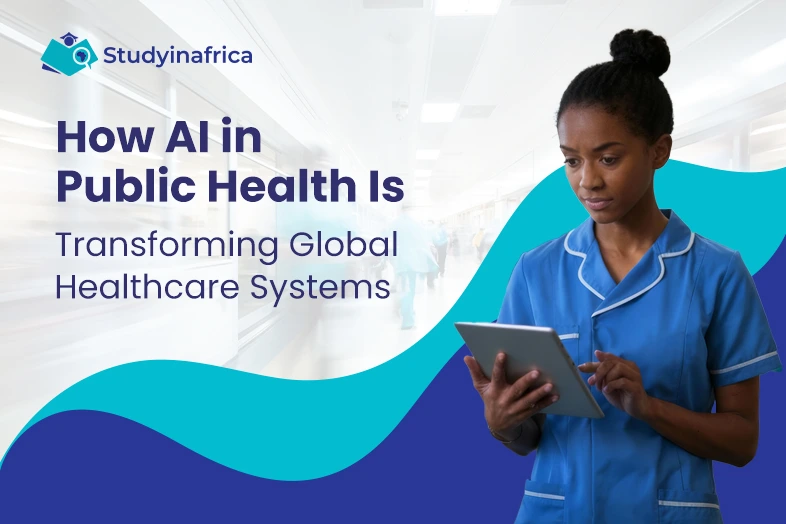
Blog Summary
Medical ethics for students is the foundation of safe and compassionate clinical practice. This blog highlights key principles—confidentiality, informed consent, beneficence, and justice—that learners should master before hospital exposure. It explains how ethics shapes patient care, builds trust, and reduces preventable harm, while preparing students for career opportunities in medicine. By blending global standards with local realities, aspiring doctors gain the ethical confidence needed to navigate dilemmas and succeed in their future medical careers.
- Introduction: Why Ethics Matters Early in Medicine
- The Four Pillars of Medical Ethics
- Medical Ethics in the Zambian Context
- Core Ethical Issues Students Must Master
- Skills Students Need Alongside Ethics
- How Universities Shape Ethical Practice
- Ethical Challenges in Modern Medicine
- Preparing for Clinical Training
- Practical Case Examples
- Global Standards and Local Relevance
- Building Ethical Confidence
- Conclusion: Ethics as the Doctor’s Compass
Introduction: Why Ethics Matters Early in Medicine
Medical ethics is not an optional add-on to the life of a doctor; it is the foundation on which patient trust, safety, and professional credibility are built. For students preparing to step into clinical environments—whether through traditional study routes or modern clinical medicine courses in Zambia—a sound understanding of ethical principles ensures they are ready to act with integrity and compassion.
Ethics guides decisions in the ward, shapes professional conduct, and instils the humility required to serve diverse patient populations. For aspiring doctors, learning about ethics before clinical practice is a transformative step toward becoming a responsible professional.
The Four Pillars of Medical Ethics
At the heart of medical ethics are four universally recognised principles:
- Autonomy – Respecting a patient’s right to make decisions about their own health, even if those decisions conflict with a doctor’s recommendations.
- Beneficence – Acting in the best interest of the patient, ensuring treatments and interventions maximise benefits.
- Non-maleficence – The commitment to “do no harm,” emphasising caution, accuracy, and safety.
- Justice – Ensuring fairness in distributing healthcare resources, treatments, and access.
Every student stepping into clinical training will encounter situations where these pillars provide clarity in making complex decisions.
Medical Ethics in the Zambian Context
Students who study in Zambia encounter a healthcare landscape that balances cultural beliefs, modern clinical practice, and resource constraints. Ethical decision-making often extends beyond textbooks—navigating local traditions, patient expectations, and infrastructural challenges.
For example, informed consent in rural clinics may involve explaining procedures in local languages to ensure true patient understanding. Likewise, respecting autonomy in settings where family or community leaders play a role in decision-making requires cultural sensitivity.
Core Ethical Issues Students Must Master
1. Confidentiality and Patient Privacy
Every medical student must internalise the principle of confidentiality. Protecting patient data, respecting privacy during examinations, and avoiding casual discussions of cases outside professional settings are vital habits.
According to the World Health Organization, around 1 in every 10 patients is harmed while receiving healthcare, and nearly 50% of this harm is preventable. This underscores how ethical practice, clear communication, and respect for confidentiality are essential to reducing patient harm and improving safety outcomes
2. Informed Consent
Informed consent is more than a signature on a form; it is a process of open dialogue. Students should learn to explain procedures in simple terms, assess patient understanding, and ensure voluntary decision-making.
This ethical duty develops crucial patient care skills for students and sets the tone for lifelong doctor-patient relationships.
3. Balancing Authority and Compassion
Doctors are often viewed as authority figures, but an ethical doctor avoids imposing decisions. They rely on both knowledge and empathy. Building strong clinical skills for medical students means practicing this balance of science and human connection.
4. Ethics in Diagnostics and Treatment
The importance of microbiology in medicine is not just academic. Ethical practice means using diagnostic tools appropriately, avoiding unnecessary tests, and considering patient affordability. Over-prescription, over-testing, or ignoring public health risks all fall into the realm of ethical missteps students must avoid.
Skills Students Need Alongside Ethics
Ethics is closely tied to professional capabilities. Students preparing for clinical practice should focus on:
- Problem solving in medicine – Ethical choices often involve weighing multiple imperfect options. A student who develops structured reasoning will avoid rushed or harmful decisions.
- Skills needed to be a doctor – Empathy, communication, cultural awareness, and teamwork are just as essential as scientific expertise.
- Patient interaction – Building trust requires listening actively and treating every patient with dignity, regardless of background.
Universities design training around these elements to ensure graduates are not only technically capable but ethically grounded.
How Universities Shape Ethical Practice
Globally, ethics training is embedded in curricula. Many universities in Zambia have integrated ethics modules into their MBChB programs, ensuring students reflect on real-life scenarios alongside anatomy and pathology.
For example, a student pursuing online degree programs in Zambia might engage in virtual case studies to debate ethical dilemmas, while those in traditional classrooms analyse local health cases during group tutorials.
The growth of digital platforms has also expanded access, allowing students to build strong theoretical foundations before applying them in clinical practice.
Ethical Challenges in Modern Medicine
The future of medical profession is evolving with artificial intelligence, telemedicine, and biotechnology. These innovations bring new ethical challenges:
- Should doctors use AI predictions in making diagnoses?
- How should digital patient data be stored and shared?
- What ethical standards apply to cross-border teleconsultations?
Students preparing today must anticipate these questions, ensuring that their ethical compass remains reliable in a rapidly changing field.
Want to understand how global reforms are shaping medical training?
? Read: Medical Education Challenges in Africa: What Aspiring Students Need to Know
Preparing for Clinical Training
Before entering hospitals, students should reflect deeply on how ethics applies to real-world practice. During MBChB programme admission, orientation sessions often highlight professionalism and patient respect.
When students step into clinical training, they are not only signing up to learn medicine—they are committing to uphold ethical values that protect patients. Such preparation enhances employability too. Employers increasingly value graduates who demonstrate professionalism, cultural awareness, and integrity alongside clinical expertise. These traits shape better career options after medicine, and in some cases even open doors to international opportunities.
Preparing for your first hospital posting? Here’s how to shine on the floor
? Read: How to Handle Clinical Rotations with Confidence in MBChB
Practical Case Examples
Ethical learning becomes concrete when tied to scenarios students may encounter:
- Scenario A: Refusing Treatment
The patient declines a blood transfusion due to religious beliefs. Should the doctor override? The ethical answer lies in respecting autonomy while documenting decisions carefully. - Scenario B: Limited Resources
Two patients need the same ventilator. Who gets priority? Justice and fairness, guided by institutional policy, provide the framework here. - Scenario C: Confidential Diagnosis
A student learns a patient is HIV positive. Should they share this information with family without consent? Confidentiality and patient rights must guide the decision.
By engaging with such cases early, students train themselves to handle future ethical dilemmas calmly and responsibly.
Global Standards and Local Relevance
Ethical guidelines from organisations such as the World Medical Association provide global frameworks. Yet, local adaptation matters. In Zambia, for example, public health policies, cultural practices, and resource distribution shape how ethics is applied.
Top institutions—often counted among the top universities in Zambia—incorporate these nuances into their curricula, blending global standards with local realities. This dual focus ensures graduates are ready to serve both at home and abroad.
Wondering which simulation tools can transform your learning experience?
? Explore: Top Medical Simulation Tools Every Aspiring Healthcare Professional Should Know
Building Ethical Confidence
Ethical confidence is not memorising principles but developing judgment through experience. Students can build this by:
- Participating in role-play sessions on patient communication.
- Reflecting on clinical experiences during ethics tutorials.
- Seeking mentorship from practicing doctors on how they resolved dilemmas.
This preparation strengthens resilience and ensures that students entering the wards are not overwhelmed by moral uncertainty.
Looking to expand your academic journey in Africa?
? Discover: Explore Africa’s Top Academic Programs
Conclusion: Ethics as the Doctor’s Compass
Every aspiring doctor, from the moment they step into a classroom to the day they don their white coat, must remember: ethics is the compass of the medical profession. Without it, knowledge and skills lose direction.
For students pursuing the MBChB or related clinical medicine courses in Zambia, integrating ethical principles early prepares them not only for exams and training but also for lifelong service.
As medicine advances, one thing remains constant—patients deserve doctors who act with honesty, compassion, and fairness. By embracing ethics now, students lay the foundation for trustworthy, impactful, and globally respected medical careers.
FAQs
1. Why is medical ethics important for students before clinical practice?
Medical ethics prepares students to handle patient care responsibly, ensuring safety, trust, and professionalism from their very first clinical encounters.
2. What are the four main principles of medical ethics?
The four pillars are autonomy, beneficence, non-maleficence, and justice. Together, they guide ethical decisions in patient care and medical practice.
3. How does confidentiality affect patient care?
Maintaining confidentiality builds patient trust, protects privacy, and reduces errors by ensuring patients feel safe to share complete and accurate information.
4. Why is informed consent vital in medicine?
Informed consent ensures patients understand procedures, risks, and alternatives, promoting autonomy and shared decision-making between students, doctors, and patients.
5. How can students improve ethical decision-making skills?
Students can practice through case discussions, role-play, mentorship, and reflection, helping them build confidence when facing real-life ethical dilemmas.



